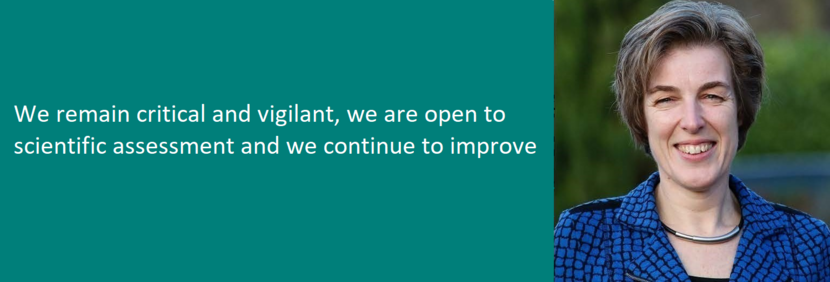Humankind: A Hopeful History
During my holiday I read Humankind: A Hopeful History by Rutger Bregman. The book really appealed to me. It is based primarily on the good aspects in people and in everyday life. Bregman provides a striking analysis of mechanisms and assumptions in historical thought – humans are essentially bad – which the media tend to reinforce with their emphasis on negative news. At the Ctgb we also have to deal with this characteristic of the media regularly.
Our world view is distorted by the news selection of the media, Bregman writes. “We are living in the wealthiest, safest and healthiest time ever. Why don't we understand this? The answer is simple: because almost all the news is about negative exceptions. Attacks, violence, disasters: the more exceptional an event, the more newsworthy it becomes.” And he illustrates this with examples such as research into plane crashes, which showed that between 1991 and 2015, the number of accidents steadily decreased, while the media attention for them increased. As a result, people are becoming increasingly afraid to board safer aircraft. Moreover, extreme aspects of the news are emphasised even more in this digital age. The people behind Facebook, Twitter and Google are aware of what you click on and offer you more of it to keep you engaged. As a result, everyday things that are going well are not reported.
I see a parallel here with our sphere of activity. As part of their risk assessment of active substances and products, EU Member States are now working closely together in compliance with strict regulations and scientifically established safety standards. High-risk substances have been phased out and are no longer used. Nevertheless, more and more discussions are dominated by people citing dubious ‘scientific facts’ to their heart's content. Moreover, the media no longer present both sides, are biased in their selection of scientific news and publish unfounded assumptions and suspicions as facts. It is also in this context that I feel drawn to Bregman's call to pay more attention to the positive aspects in everyday life: so much is going well and so much has already improved in Europe. And we keep improving. Indeed, this is ingrained in European regulations, assessment systems and processes. We remain critical and vigilant, we are open to scientific assessment and we continue to improve. That is simply part of our ‘everyday’ work.
Ingrid Becks
Secretary/Director of the Ctgb


